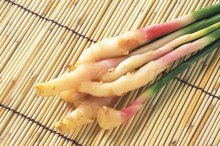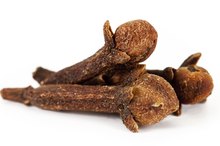Kamias Nutrition
Kamias is the Filipino name for a tree scientifically known as Averrhoa bilimbi. In English, it is known as the cucumber or sorrel tree. This tropical tree is found naturally in Malaysia and Indonesia, and its fruit is used both for cooking and traditional medicine. Though kamias is a highly acidic fruit, it can be consumed after certain preparations are taken, and it does provide trace amounts of vitamins and minerals.
Identification
The height of the kamias tree can reach up to 33 feet, and its leaves, similar to those of the otaheite gooseberry, tend to cluster at the ends of the branches. All year long, it bears small yet fragrant flowers that are either yellow-green or purple. The fruit is yellow-green and belongs to the same family as the starfruit, which is sweeter than kamias. Though sour, the flesh of the kamias fruit is juicy and soft.
- The height of the kamias tree can reach up to 33 feet, and its leaves, similar to those of the otaheite gooseberry, tend to cluster at the ends of the branches.
- The fruit is yellow-green and belongs to the same family as the starfruit, which is sweeter than kamias.
Nutritional Values
Cedar Leaf Oil Toxicity
Learn More
Kamias fruit contains a small amount of vitamins and minerals. According to Purdue University, an edible portion of kamias is considered to be 100 g, and this contains 0.61 g of protein, 0.6 g of fiber, 3.4 mg of calcium, 1.01 mg of iron, 11.1 mg of phosphorus, as well as trace amounts of other minerals 1.
Food Uses
Due to the acidic nature of kamias fruit, it is quite sour and not often eaten raw. In Costa Rica, the fruit is used as a relish, and people in other countries use it in recipes that require a sour taste such as chutneys or pickled foods. Kamias can be substituted for vinegar, used in juices like lemonade, or even combined with large amounts of sugar to make jams.
Medicinal Uses
The Health Benefits of Spica Prunellae
Learn More
Medicinally, kamias can be made into a paste and applied topically to itchy or swollen skin or skin affected by bug bites. In traditional Malay medicine, they create an infusion of the fruit and leaves to remedy a cough, as well as administer a tonic to women after they give birth. This infusion is also used on pimples, hypertension, dizziness and diabetes. Those in Indonesia use the kamias fruit as a treatment for fevers, inflammation, rectal bleeding, boils and other conditions. The flowers of the kamias are also used as a remedy for toothaches.
- Medicinally, kamias can be made into a paste and applied topically to itchy or swollen skin or skin affected by bug bites.
- Those in Indonesia use the kamias fruit as a treatment for fevers, inflammation, rectal bleeding, boils and other conditions.
Warnings
Do not consume kamias without first checking with a health care provider, and do not attempt to treat any medical condition or problem by consuming, drinking or topically applying the fruit. Kamias may interact with medications you are taking or other conditions you have. Consult a doctor before you eat it or attempt any at-home remedies.
- Do not consume kamias without first checking with a health care provider, and do not attempt to treat any medical condition or problem by consuming, drinking or topically applying the fruit.
- Consult a doctor before you eat it or attempt any at-home remedies.
Related Articles
References
Writer Bio
Lynne Sheldon has over 12 years of dance experience, both in studios and performance groups. She is an avid runner and has studied several types of yoga. Sheldon now works as a freelance writer, editor and book reviewer. She holds a Bachelor of Arts in English and art history from Boston University and recently completed her Master of Fine Arts in writing from Pacific University.









